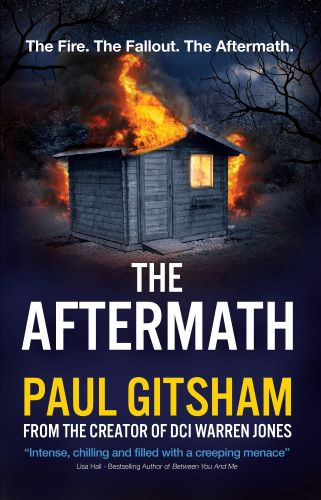That’s Out Of Order!
Beginning At The End.

If you are a keen reader or viewer of TV drama, you are already familiar with what’s known in the industry as in media res. This Latin phrase translates as “into the middle of things” and describes stories that open in the middle of the action, before going back in time to see what happened in the run-up to that scene.
Unless you have figured out a way to thwart the laws of physics, time in the real-world follows a linear trajectory.
As you were probably taught in school, a story has a beginning, a middle and an end.
Beginning –> Middle –> End.
But this isn’t the only way to tell the story to someone else.
You can actually start in the middle of a story, then go back and fill in the details, before drawing to a conclusion.
Middle –> Beginning –> More Middle –> End.
Or you can even start at the End, then go back and tell the entire story.
End –> Beginning –> Middle –> End (+ aftermath).
So why would you do this?
The purpose of any story is to keep the reader engaged. Readers are a discerning breed, with no shortage of alternative ways to spend their time (and money). It is essential to hook a reader in the first few pages, or they will abandon the story (and perhaps not even buy it to read further).
By starting a book in the middle of the action, you leave the reader wanting to know more. You leave them with questions. Who are these characters? How did they find themselves in this situation? How will they resolve it?
Let’s imagine a hypothetical scenario.
A character Jane lives in safe, middleclass suburbia. She is happily married. Over the course of several months, her relationship breaks down and one day she is murdered. An investigation takes place, and eventually the culprit is uncovered.
You can tell this story in a couple of ways.
First: You can tell it in strict chronological order. We tell the reader who Jane is and chronicle her happy life, then document its sad decline, leading to a murder about half-way through, then describe the investigation and conclusion.
That’s fine and there are countless excellent examples of compelling stories told in this way. But what if Jane is very happy at first, and everything seems perfect? If you aren’t careful, that can be rather dull. Readers of crime fiction usually want something more substantial to get their teeth into and they are impatient. What appears to be the story of a woman’s happy married life may dissuade them from reading more than a few pages before giving up and reading something different. The cover and blurb has probably told them that Jane will be dead before the end of the book, but if it looks as though they have to wade through 100 pages to get there, they’ll abandon ship. You have failed to hook your readers.
The second way is to start with a murder, and then go back and describe what led up to it.
If you keep the details of the murder sparse, your readers will hopefully be left with questions that they want answered.
Who is the victim?
Why has this happened to them?
Who did this to them?
The only way to find out the answers to those questions is to continue reading.
The reader will also be more engaged. They have some knowledge of the murder that is coming, so they will naturally start looking for clues. Is there foreshadowing of the tragic events that will unfold? What about apparent contradictions? We know from page one that Jane was murdered by a man. So what is the significance of the blazing rows with her female best friend? As the story unfolds, the suspect list grows. Obviously the killer is her husband, as we see their marriage breaking down. But hang on, is he really the murdering type? And who is the person that Jane is texting late at night? Are they involved?
Exactly where in this whole, sorry tale, you start narrating the story depends on what sort of story you want to tell. You don’t have to start with the actual murder to hook your readers. What about an earlier incident? Your reader probably figures that Jane is not long for this world, so why not tease them by showing them something that shows her in danger, but don’t actually kill her? Maybe we don’t know if Jane is the character that is killed? Or, you could start almost at the end. Show someone being arrested, then tell the story of how we got to that point? If they are vehemently protesting their innocence, perhaps the reader could play along and try and decide if the police have the right person?
What are your thoughts on starting in the middle? Have you got any really good examples?
If you are a writer with a tip to share, or fancy writing a fictional interview between you and one of your characters, please feel free to email me.
Until next time,
All the best,
Paul



















